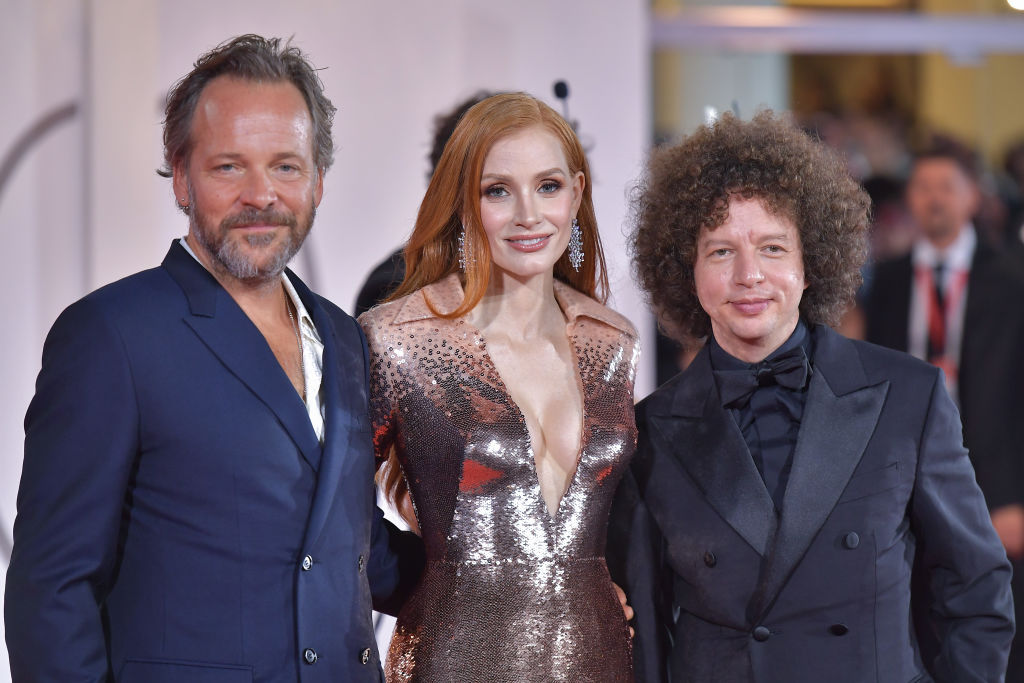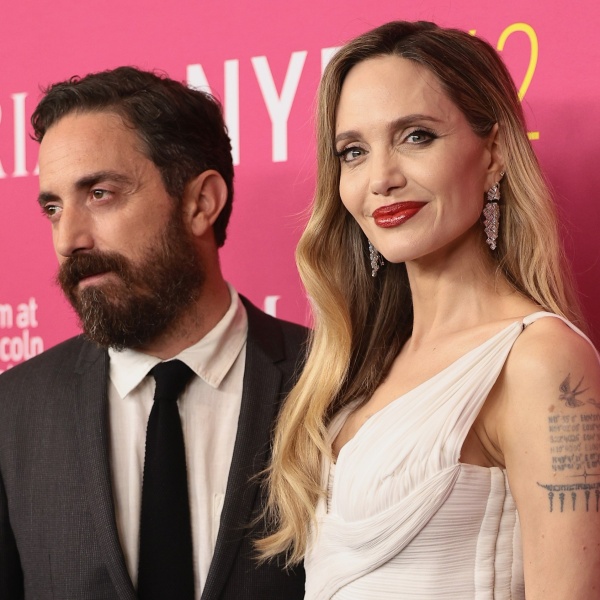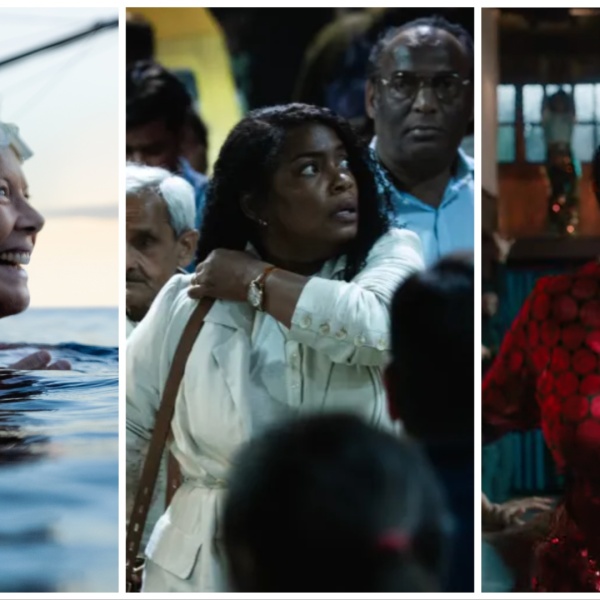Attending a major film festival is soul-draining and exhilarating in equal measure, with days bookended by crack-of-dawn P&I screenings and until-dawn 2 a.m. parties. At this year’s 80th Venice Film Festival, which unfolds on the former plague quarantine island of the Lido that’s a water taxi away from the main city, things were different.
There were no paparazzi shots of “Maestro” director and star Bradley Cooper taking those water taxis because he didn’t attend. Ditto Zendaya, whose would-be opening-night title “Challengers” was removed from the lineup, or Emma Stone for “Poor Things.” The ongoing SAG-AFTRA and WGA strikes and the work stoppage orders prevented talent without an interim agreement from attending or promoting their films, an idea that initially seemed at odds with film festivals and Venice — a city that seems to float on glamour as much as the Adriatic Sea — in particular.
And certainly: The party scene was less lively, red carpet moments less viral, and the step-and-repeats left plenty of elbow room. But what no one may have anticipated is that for those who attended the festival to, you know, see the movies, the dialed-down atmosphere was a rare gift that gave behind-the-camera creators a priority platform at a festival known for its celebrity sightings.
Attendance seemed unaffected. This is a festival with major crowd control issues, with press and industry bottlenecked inside and out of the Palazzo del Casino and other venues; il bagno queues were rarely less than a 10-minute wait.
Films “Ferrari” (Neon) and “Priscilla” (A24) received interim waivers for onscreen talent to attend, with A-lister Adam Driver and rising stars Jacob Elordi and Cailee Spaeny (both young and maybe just a little bit uncomfortable on the carpet and the press room) representing their respective films. Jessica Chastain also was able to attend to rep Michel Franco’s sales title “Memory.” At the Friday afternoon press conference, Chastain wore a “SAG-AFTRA on Strike” T-shirt and admitted to being nervous about showing up at all.
True, the lack of celebrity meant that the press attracted less attention from the outside world, but that also means the fervor felt by those of us in the screening rooms now can do the job of spreading word of mouth outside the hype machine. Trades, including IndieWire sister sites Deadline, Variety, and The Hollywood Reporter, couldn’t hold court with their perennial celebrity studios that always yield clickable pull quotes. (THR Roma held a party honoring “Priscilla,” while Variety partnered with the PMC-acquired Golden Globes for another fete light on top-shelf names.)

The names that were on hand brought plenty of eyeballs and butts in seats, like Woody Allen showing up for his “Coup de Chance” press conference, weary in the eyes but still managing to dodge squirmy questions. Protestors gathered outside the premiere of his benign and middling film, and no U.S. distributor will touch Allen’s French-language domestic thriller.
Other festival filmmakers who inspired reactionary responses were Roman Polanski (“The Palace”) and cleared formerly alleged sex offender Luc Besson (competition entry “Dogman”). “Will the Golden Lion go to a rapist?” a banner pasted along the Lido read Sunday morning. (Polanski and Allen cannot win the Golden Lion; both films played out of competition.)
Still, controversies were minimal and directors got the chance to speak for their movies without their casts at the ready. Yorgos Lanthimos gave a warm and relaxed press conference to support his universally acclaimed competition title, the bawdy sexcapade picaresque “Poor Things”; he talked about Stone’s gamesmanship (and her intimacy coordinator) for the movie’s many, many sex and full-frontal-nudity scenes.
Penélope Cruz did not attend her “Ferrari” premiere for personal reasons, per Venice artistic director Alberto Barbera, but Driver and director Michael Mann spoke candidly about the collaborative alchemy that drove their automaker opera, signing autographs for a crush of eager fans afterward. David Fincher, in competition for the first time with his low-key assassin thriller “The Killer,” did not have Michael Fassbender by his side during the post-premiere, five-minute Sala Grande standing ovation that left him puzzled. As in Cannes, these drawn-out clap-a-thons are an Italian tradition, and mostly arbitrary.

So the festival’s celebrities became the filmmakers themselves, who so rarely get a glittering spotlight. Studios keep pushing their titles off to next year, which shows how little faith they have in directors to push their own films to the box office. It’s believed that press junkets and red-carpet airtime for acting talent are endemic to a film’s success. But Venice proved that a provocation like “Poor Things” — which has more sex and exposed genitalia than any studio movie you’ve seen — can stand on its own strangeness. Searchlight pushed the film off its post-Venice September release date to December 8, but it will still make a mark on awards season.
Without the distraction of celebrity, international fare and festival sidebars, from the Orizzonti to the burgeoning VR Immersive program, could stand out. The lineup of VR and augmented reality projects, from “Jim Henson’s The Storyteller” animated books by Felix & Paul to Marc Da Costa and Matthew Niederhauser’s AI machine-learning cautionary tale “Tulpamancer,” was fully booked for the first time in the festival parallel’s six-year history. Meanwhile, the Orizzonti section that showcases emerging filmmakers stirred buzz for Iranian-Israeli judo drama “Tatami,” one of few Middle Eastern films in the program, and “You Won’t Be Alone” director Goran Stolevski’s Macedonian “Housekeeping for Beginners.”

Another film outside the main competition that had people talking (and in some cases, literally leaping out of their seats to escape) was Harmony Korine’s “AGGRO DR1FT.” The shapeless infrared-shot Florida tone poem is the “Spring Breakers” director’s first film under his new company EDGLRD, and his response to feeling ennui over the current state of moviemaking. My former IndieWire colleague, Eric Kohn, now heads up EDGLRD’s strategy and development. Kohn, Korine, and “AGGRO” VFX artist Joao Rosa showed up to the press conference in horned demon masks. The “Gummo” and “Julien Donkey-Boy” noisemaker doesn’t care what you think about his latest movie, which stoked boos, walkouts, and a 10-minute standing ovation maestroed by Korine himself across its two press screenings and out-of-competition Sala Grande premiere.
Regardless — and because of the fierce and divisive reactions to films like “AGGRO DR1FT” — this year’s Venice was one for cinephiles, where directors served as figureheads for their work in the purest form. I didn’t miss the parties or standing on a hot, humid press line in a tux; it just meant more time for the movies.
As much as the film community desperately needs these strikes to end, there was something serene about a minor-key festival launchpad whose actors will eventually get the chance to speak anyway once our limbo is over. And a Venice world premiere status, especially this year’s, is never a bad imprimatur as these films move ahead and find their way to … wherever they’re going.



